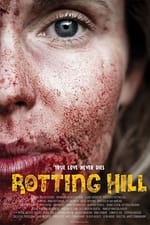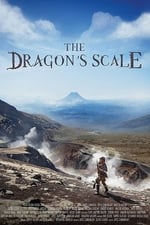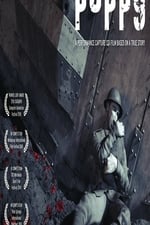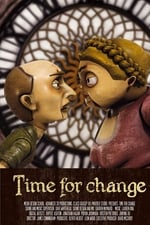Zur Person
Bekannt für Regie
Auftritte 12
Geschlecht -
Geboren am -
Geboren in -
Auch bekannt als
- -
Datenstand
63
Wir sind nah dran und doch noch weit entfernt.
Anmelden um einen Fehler zu melden
Biografie
James Cunningham believes that although animation is ultimately just a tool, it can be a very powerful tool — the kind that allows filmmakers the ability to craft exactly the images and angles that they want to realise their vision.
Cunningham’s own career has seen him specialising in computer-generated imagery, be it full 3D animation or visual effects added to live action. Since graduating from Elam (in Auckland) in 1997, he has crossed back and forth between the stylised CGI images found in his own shorts, and the photo-realistic kind used in live action commercials and movies.
Cunningham studied photography at Elam, following it with a Master of Fine Arts in digital animation. In 1997, working alongside producing partner Paul Swadel, he completed rollercoaster-style short film Delf (short for ‘digitally engineered life forms’). The film featured two tadpole-like creatures on the chase, set to a driving Pitch Black soundtrack. Delf — and follow-up films Blinder (1998) and 14-months in the making Infection (2000) — all starred computer programmes as on-screen characters, moving through their own digital worlds.
Delf and Blinder both won attention — Blinder even got local theatrical release alongside movie In the Company of Men. But Infection proved to be Cunningham’s international breakthrough. Peopled with a troupe of syringe-soldiers and the Dali-like moving eyeball seen in Blinder, Infection became one of the biggest selling-Kiwi shorts to date. Alongside invitations to 20+ festivals, the stylish tale of digital robbery competed at Cannes in 2000, plus indie showcase Sundance.
When Cunningham heard the pitch for Poppy, a tale of WWI soldiers from talented young writer David Coyle, he felt strongly that it would gain added power as an animated film. Months later, Cunningham and film-making partner Paul Swadel began rehearsing with actors Paul Glover and Matthew Sunderland, using umbrellas and golf-clubs filling in for rifles. Later they captured footage of the actors during an extended day of motion capture at Weta Digital.
Cunningham spent 14 months making Poppy, aided by a small support team that grew from one to three artists across the year. In total it took 4,500 hours to produce the 10 minutes of animated film. The result was two awards at international computer graphics conference Siggraph, a ‘Best Technical Contribution’ Award back home, and invites to a run of festivals, including Melbourne, SXSW and Telluride.
Cunningham continues to be involved in animated shorts as teacher of the 3D animation course at Auckland’s Media Design School. Among his goals is making sure the work of students wins international recognition. Led by Cunningham, two shorts from the Advanced 3D production class were finalists at the 2010 Visual Effects Society awards: Time for Change, and submarine tale Das Tub (Time for Change and sci-fi spoof First Contact were also selected for premier CGI showcase SIGGRAPH). Das Tub also went on to win Best Short Short at the 2011 Aspen Shortsfest, and Cunningham took Best Director at the Honolulu Film Awards.
James Cunningham believes that although animation is ultimately just a tool, it can be a very powerful tool — the kind that allows filmmakers the ability to craft exactly the images and angles that they want to realise their vision.
Cunningham’s own career has seen him specialising in computer-generated imagery, be it full 3D animation or visual effects added to live action. Since graduating from Elam (in Auckland) in 1997, he has crossed back and forth between the stylised CGI images found in his own shorts, and the photo-realistic kind used in live action commercials and movies.
Cunningham studied photography at Elam, following it with a Master of Fine Arts in digital animation. In 1997, working alongside producing partner Paul Swadel, he completed rollercoaster-style short film Delf (short for ‘digitally engineered life forms’). The film featured two tadpole-like creatures on the chase, set to a driving Pitch Black soundtrack. Delf — and follow-up films Blinder (1998) and 14-months in the making Infection (2000) — all starred computer programmes as on-screen characters, moving through their own digital worlds.
Delf and Blinder both won attention — Blinder even got local theatrical release alongside movie In the Company of Men. But Infection proved to be Cunningham’s international breakthrough. Peopled with a troupe of syringe-soldiers and the Dali-like moving eyeball seen in Blinder, Infection became one of the biggest selling-Kiwi shorts to date. Alongside invitations to 20+ festivals, the stylish tale of digital robbery competed at Cannes in 2000, plus indie showcase Sundance.
When Cunningham heard the pitch for Poppy, a tale of WWI soldiers from talented young writer David Coyle, he felt strongly that it would gain added power as an animated film. Months later, Cunningham and film-making partner Paul Swadel began rehearsing with actors Paul Glover and Matthew Sunderland, using umbrellas and golf-clubs filling in for rifles. Later they captured footage of the actors during an extended day of motion capture at Weta Digital.
Cunningham spent 14 months making Poppy, aided by a small support team that grew from one to three artists across the year. In total it took 4,500 hours to produce the 10 minutes of animated film. The result was two awards at international computer graphics conference Siggraph, a ‘Best Technical Contribution’ Award back home, and invites to a run of festivals, including Melbourne, SXSW and Telluride.
Cunningham continues to be involved in animated shorts as teacher of the 3D animation course at Auckland’s Media Design School. Among his goals is making sure the work of students wins international recognition. Led by Cunningham, two shorts from the Advanced 3D production class were finalists at the 2010 Visual Effects Society awards: Time for Change, and submarine tale Das Tub (Time for Change and sci-fi spoof First Contact were also selected for premier CGI showcase SIGGRAPH). Das Tub also went on to win Best Short Short at the 2011 Aspen Shortsfest, and Cunningham took Best Director at the Honolulu Film Awards.
Regie
|
|||||||||
|
|||||||||
|
|||||||||
|
|||||||||
|
|||||||||
|
|||||||||
|
|||||||||
|
|||||||||
|
Drehbuch
|
||||||
|
||||||
|
||||||
|
||||||
|
Produktion
|
||||||
|
Visual Effects
|
|||
|
|||
|
Schnitt
|
|||
|




